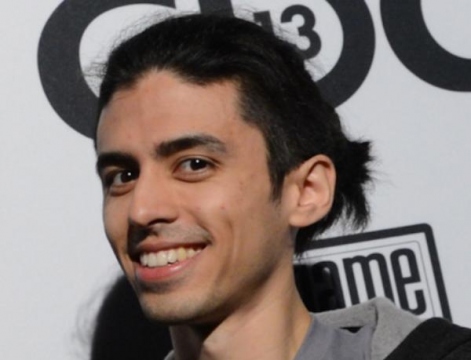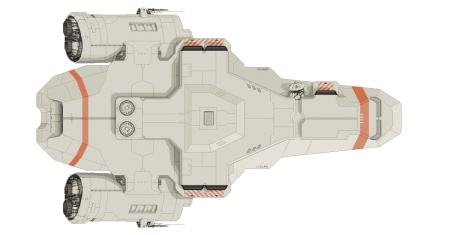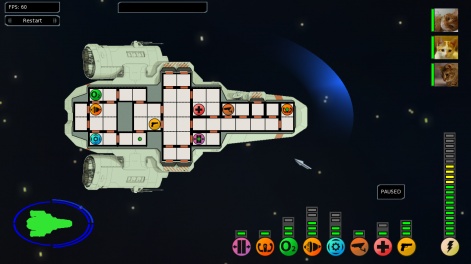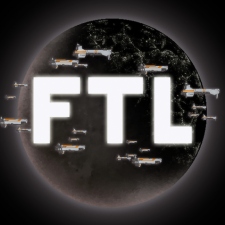We can all relate to resource management - especially game designers.
So when a game launches its player into space and asks them to manage their fuel reserves and the amount of missiles in their armoury, it immediately makes sense - replace missiles with bread and fuel with toilet paper and it’s a very real human dilemma.
It was something Justin Ma and Matthew Davis were ready for when creating FTL: Faster Than Light, even though - had the Kickstarter been finished much earlier - they could have been less mindful of limitations.
You see, the game raised twenty times more their Kickstarter goal, but the game was already close to completion when the Kickstarter launched. Because the Kickstarter had given a projected release date in the near future, it meant the pair couldn’t throw the extra funds at development without considerable delays, so instead they concentrated on expanding what was there.
Rocket fuel
"The money helped us expand FTL considerably - we increased the scope, got an incredible soundtrack from Ben Prunty, and had Tom Jubert assist with the writing," recalls Ma.
"In the end, this meant we had a three-month long crunch period of trying to improve the game as much as possible without pushing the release date back too far. I feel in the end we did a good job of balancing the two goals but the stress nearly derailed the whole project."

The Kickstarter steamrolled every projection Ma and Davies had - something about the game seemed to appeal to the masses, but Ma, remaining modest as ever, believes there was more to it than that.
"The simple answer is that FTL appears to just appeal to a lot of people - placing yourself into the shoes of Captain Picard seems to be a common fantasy," suggests Ma. "That being said, I feel the majority of exposure our Kickstarter received was due entirely to luck - our campaign went live right after the Double Fine Adventure Game Kickstarter took off. The entire gaming community's eyes were turned towards Kickstarter. We were one of the few games on there at the time and it boosted our visibility considerably."
Reading about success stories such as FTL can make Kickstarter seem like an appealing prospect for the independent developer, but Ma believes it isn’t always the best route to a successful launch.
"I wouldn't recommend [Kickstarter] to every developer, but it’s a great boon to many small teams," says Ma. "Crowdfunding is a great way for studios to actualise games that wouldn't traditionally appeal to publishers. Kickstarter may not be the ideal delivery system, but I don't think the model be going anywhere any time soon. However, studios looking into Kickstarter need to be prepared to deal with the unique challenges that running a campaign provides."
With increased exposure comes increased expectation, all leading to extra pressure for Ma and Davis’ indie debut. It’s easy to look at a financial success like FTL and think it’s easily achievable to do the same, but this was far from Ma and Davis’ first foray in games development, between them they had the experience to succeed. Like FTL’s ship crew, sometimes it’s best to build up your experience levels before jumping to the next sector.
Level up
Justin Ma was born in Mountain View, California, but he grew up on Long Island, New York. He’s always played videogames, starting on consoles until he discovered PC gaming nearer to adulthood.
"Initially, I played videogames because of the pure enjoyment I received from the challenging new experiences they offered," remembers Ma. "I probably don't have to explain how compelling exploring the bizarre and dangerous world of the Legend of Zelda was to a child - I was pretty much hooked from my first exposure. Eventually my interest became more nuanced as I learned to appreciate the complexities of game design."
At the time, Ma’s father worked in the industry on the business side, so Ma sometimes got to peek behind the curtain, gathering insight on how games were made from a young age.
The difficult lessons I learned from 2K were essential in our ability to release FTL.Justin Ma
"This probably influenced my eventual decision to get into the games industry," reflects Ma. "After college I was working as a graphic designer, after not having any luck finding a games-related job in the US. Eventually my girlfriend and I moved to Shanghai, to experience a bit more of the world."
Whilst there, Ma landed an entry position at 2K Shanghai, with the help of his father and brother. Ma worked on games like, Top Spin 2, BioShock 2 and a handful of 2K’s social games.
"Those games helped me start learning some of the most important skills to anyone working in a games studio: no matter how small the team - product management, working with team members, structuring development to hit milestones, and so forth - these aren't skills that people often associate with making small indie games," says Ma. "These difficult lessons from 2K were essential in our ability to release FTL."
Growing up, Matthew Davis had a similar interest in games to Ma. Davis majored in Computer Science and attended the Games Developer Conference in San Francisco, in the hope of applying for a full-time position. He was offered one by 2K, on the caveat that he must relocate to Shanghai - where he met Ma.
Inspirational summit
Davis wasn’t the only one to experience a life changing event at GDC, either. In 2011 Ma had saved up the funds to attend GDC for the first time. It was there where the decision to go independent really started to blossom, at the Indie Game Summit.
"It was an incredibly inspiring experience, but the Indie Game Summit had the most impact on me," says Ma. "Watching and reading about the various indie developers at the time, like Jonathan Blow and Team Meat, solidified my desire to pursue creating my own games. It wasn't long after that Matt and I decided to leave 2K and spend a few months working on games together."

It was there that the pair came up with the concept for FTL. The game was heavily influenced by board games they had come across which used a similar ship management system and they wondered why they’d never seen a videogame do it. There were games with ships in, but the player was never truly the commander of a starship, they were usually just glorified foot soldiers.
"As with most creative endeavours, inspiration was drawn from all over: board games, TV shows, movies, PC games, etc," says Ma. "For example, the biggest thematic influences were shows like Star Trek, Firefly, Battlestar Galactica, and Deep Space 9. In addition to the many board games we've cited - like Battlestar Galactica and Red November - a lot of gameplay mechanics were inspired by games like Weird Worlds and Spelunky."
Taking inspiration from all these sources, FTL started out as a very ambitious project, only to be scaled back to publish a more polished product. Sometimes it’s about knowing which bits of cargo to blast out the airlock.
Empty space
"The story of FTL's release could be told just in what was cut," says Ma. "Initially we were considering grandiose game structures, like managing food and morale; interacting with different factions of NPCs; worrying about traitors and mutiny; etc.
"Eventually we opted to streamline the gameplay and focus on crew movement and power management. Once that was decided, lots of intended features were abandoned.
"As we neared release, many more smaller features were cut, such as specific systems, equipment, and aliens. Some of the abandoned ideas got a new life when we worked on the Advanced Edition update - like Hacking - but most got left on the chopping block. It took a while to solidify the basic mechanics and gameplay structure. Before then, aspects were frequently changed quite dramatically."
The story of FTL's release could be told just in what was cut.Justin Ma
FTL could have been a completely different beast, had the mechanics not been tinkered with or discarded. At one point, FTL was more structured, with different levels and challenges; ships once moved on a 2D plane; weaponry was angle-specific; there was even a period where the developers wanted to add in customisable ships.
"Initially we thought the different crew member roles would be filled by different classes - engineer, marine, etc," says Ma of the game’s other transformations.
"Eventually we saw an opportunity to make the universe more interesting by using unique alien races instead. Most races started from game design - we knew what features we wanted the race to have and tried to create a culture around it. Once Tom Jubert started working with us he was responsible for brainstorming the possible thematic features of the additional races."
Sometimes ideas don’t need changing completely, they just need iteration. It isn’t all about lightening your ship, either. Sometimes you need to know when to douse the fires, repair the leaks, and persist with the implementation of a feature.
For the first nine months, the pair didn’t even think FTL was fun to play.
Fun in the sun
"The first few months, it wasn't particularly fun - it was just a bunch of mechanics that seemed like they had potential," recalls Ma. "After about five months we had a pretty decent idea about what the final gameplay would be like, but we never expected the game would appeal to any sizeable audience.
"I wouldn't say FTL was particularly fun during this period, but it was challenging and interesting. Once we submitted the game to a few competitions and showed it off at GDC China we started to get the feeling it could eventually be a commercial product."
Even now, the game retains much of that challenge and intrigue. Completing the game on Normal setting is a challenge to the most experienced players, which has helped build a hardcore community around the game.
"FTL started as a throwback to the challenging experiences of many videogames of our childhood," says Ma of the game’s notorious difficulty. "Videogames today often try to 'hold the player's hand' in an attempt to improve their accessibility. We missed games where victory wasn't inevitable. With the popularity of FTL and games like XCOM and Dark Souls, I feel there's definitely room for games that are very challenging."

The most notable challenge for Ma and Davis didn’t come in the form of balancing that difficulty, though. It didn’t come from the constant iterations of the game’s mechanics. The biggest challenge was a product of the game’s own success.
"I think the biggest development hurdle was getting the game ready to launch after the Kickstarter," says Ma. "With the success of our campaign, the two of us had to suddenly figure out how to manage hundreds of beta testers, contact press and publishers for the first time and also working full-time to simply finish the game.
"It was a ton of pressure and honestly it was a bit of a blur. I don't think we would have been able to get through it without the help of our girlfriends, family and friends. They helped us both with game testing, moral support but also some pretty important things... like making sure we ate."
Once the game was finally released the pair could finally relax. They both lived happily ever after. That is until demand for an iOS version entered them into an uncharted nebula, the likes of which they’d never seen before.
Future interface
"Adapting the game to tablets presented a number of challenges - an alternative input, hardware differences and limited screen size," says Ma.
"Once we figured out that the screen was large enough to support showing and interacting with all of the game elements, we brought Andrew Church in to help with the technical challenges. Neither Matt nor I have worked on iOS before and with Matt being our only programmer it would have been near impossible without help from someone who understood the platform better."
FTL feels like a natural fit for touchscreens, which was a stroke of luck, as the game wasn’t designed with the port in mind, although Ma had been looking into it soon after the Kickstarter.
"There were a lot of technical challenges in getting our game running smoothly on iPad hardware," admits Ma. "However, I was removed from that process and was more focused on the design issues. The biggest challenges on that front was the limited screen size and our game’s reliance on pixel-perfect art. There was a lot of information we had to convey on a screen that was considerably smaller than the original game's resolution.
iOS devices aren't really a platform we like developing on or designing for - we're really PC guys at heart.Justin Ma
"Nearly every visual element is interactive and therefore needs to be visible at all times, plus scaling the art wasn't an option due to the pixel-art. If tapping to select crew members wasn't reliable on the smallest device - the iPad Mini - it would have pretty much been a deal breaker. Luckily, our solution to have the two ships’ focus alternate in combat worked well enough."
Unfortunately, players might not see another game by Ma and Davis on iOS again.
"iOS devices aren't really a platform we like developing on or designing for - we're really PC guys at heart," says Ma. "If we create another game that seems like it could work well on the platform, we will certainly consider bringing it to tablets. However, I doubt we'll start a project with touchscreens in mind."
The team’s expectations were low sales-wise on iOS, as they’d set the price higher than many other games on the platform. Although forecasts were modest, FTL is "doing better than expected." That’s not to say they’re finished with touchscreens yet.
"We'll be looking into the possibility of getting FTL onto Android tablets and getting the touch controls to work with tablet PCs," says Ma. "After that, we want to go back to working on small video and board game prototypes. The early phases of development are some of the most interesting and challenging."
As for an FTL sequel - it could happen one day. "I wouldn't entirely discount the possibility, but it's definitely not something we'll be diving into any time soon," concludes Ma. FTL proves that players want interesting, new concepts, especially if they’re set in space. Space is officially cool again.






















